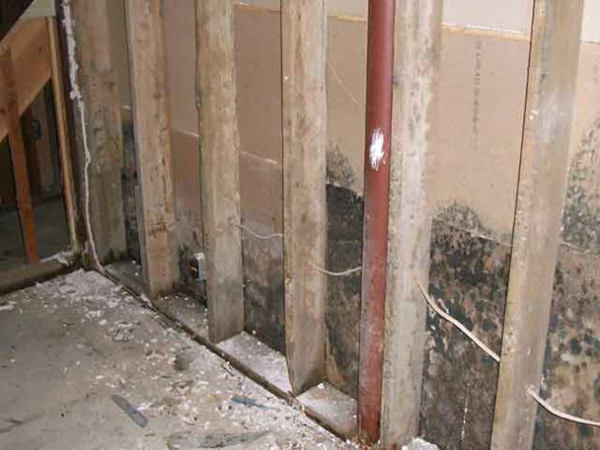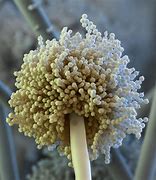Mold
Inspection
What Is Mold?
Molds are fungi. Molds grow throughout the natural and built environment. Tiny particles of mold are present in indoor and outdoor air. In nature, molds help break down dead materials and can be found growing on soil, foods, plant matter, and other items.
Molds produce microscopic cells called "spores" which are very tiny and spread easily through the air. Live spores act like seeds, forming new mold growths (colonies) when they find the right conditions.
What does mold need to grow?
Mold only needs a few simple things to grow and multiply:
Moisture
Nutrients
Suitable place to grow
Of these, controlling excess moisture is the key to preventing and stopping indoor mold growth.
Should I be concerned about mold in my structure? Mold should not be permitted to grow and multiply indoors. When this happens, health problems can occur and building materials, goods and furnishings may be damaged.

Health Effects
Can mold make my property tenants sick?
Mold can affect the health of people who are exposed to it. People are mainly exposed to mold by breathing spores or other tiny fragments. People can also be exposed through skin contact with mold contaminants (for example, by touching moldy surfaces) and by swallowing it.
The type and severity of health effects that mold may produce are usually difficult to predict. The risks can vary greatly from one location to another, over time, and from person to person.

The most common health problems caused by indoor mold are allergy symptoms. Although other and more serious problems can occur, people exposed to mold commonly report problems such as:
Nasal and sinus congestion
Cough
Wheeze/breathing difficulties
Sore throat
Skin and eye irritation
Upper respiratory infections (including sinus)
Are the risks greater for some people?
There is wide variability in how different people are affected by indoor mold. However, the long term presence of indoor mold growth may eventually become unhealthy for anyone. The following types of people may be affected more severely and sooner than others:
Infants and children
Elderly people
Individuals with respiratory conditions or sensitivities such as allergies and asthma
Persons having weakened immune systems (for example, people with HIV infection, chemotherapy patients, organ transplant recipients)
Those with special health concerns should consult a medical professional if they feel their health is affected by indoor mold.
Are some molds more hazardous than others?
Some types of mold can produce chemical compounds (called mycotoxins) although they do not always do so. Molds that are able to produce toxins are common. In some circumstances, the toxins produced by indoor mold may cause health problems. However, all indoor mold growth is potentially harmful and should be removed promptly, no matter what types of mold is present or whether it can produce toxins.
Mold Sampling Inspections
It may be a good idea to have a mold inspection when:
You see probable mold
There are areas that are wet
There was a past water event that has been corrected
There is a mildew smell in the structure
Your tenants are sensitive to molds
Enviro Fox Mold Sampling Inspections consist of at least 4 air samples, taken from areas of concern to you. We can also take swab samples if there is visible mold that you want tested. The samples are documented on a Chain of Custody form and mailed overnight express to a laboratory for testing. Lab results are emailed to us, usually in 24-36 hours (longer if over a weekend or holiday). The lab's report includes the prevalence of molds in the samples, the types of mold in the samples, and a description of the hazards associated with these particular types of molds. The lab report and our report, which includes photos, are provided to you within a few minutes of our receipt of the report from the laboratory.
Call Us Today: 713-723-3330
Or email [email protected]
©2023 Fox Residential Services Group, LLC. All Rights Reserved.

